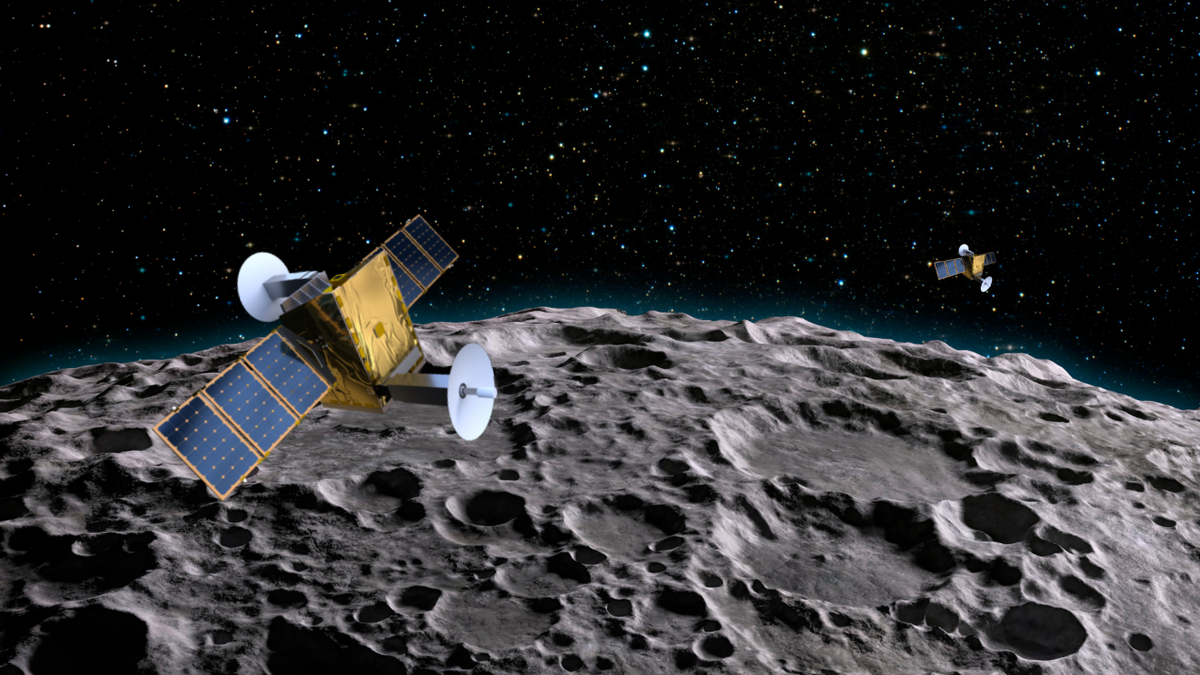Denver-based company Lockheed Martin has announced the launch of a subsidiary for the purpose of setting up communication and navigation services around the Moon for future lunar missions.
Lockheed Martin announced the launch of Crescent Space Services LLC on Tuesday, with the new company set to provide “infrastructure-as-a-service for lunar missions,” the company wrote in a press release. Crescent will operate its own network of satellites in lunar orbit to support spacecraft on and around the Moon, enabling uninterrupted communication between Earth and the lunar missions.
The network, called Parsec, will use a constellation of small communication satellites built by Lockheed Martin. The first satellites are projected to launch in 2025. Lockheed Martin also filed an application with the Federal Communications Commission to launch and operate 230 space stations, or user terminals, on the surface of the Moon, in addition to the satellites. Based on the filing, Lockheed Martin is anticipating a slew of upcoming missions to the Moon that would require its subsidiary’s services, with the company essentially creating an operational communication and navigation network similar to cell-phone services on Earth.
Previous lunar missions have communicated with Earth directly using relay satellites. Apollo astronauts used an S-band transponder to transmit signals, for example. However, missions on the Moon tend to communicate from its near side—the accessible side facing Earth. Future missions are likely to involve activities on the lunar far side, which would require the help of the Parsec satellites to relay signals back to Earth.
“Crescent is well positioned to serve the upcoming wave of lunar science and exploration missions, including NASA’s crewed Artemis moon landings,” Crescent CEO Joe Landon, who previously served as vice president of Advanced Programs Development for Lockheed Martin Space, said in the company’s statement.
For starters, NASA is planning a return to the Moon with its ongoing Artemis program. But unlike Apollo, the space agency now wants to establish a longterm presence of humans on the Moon, in addition to building an international orbiting lunar outpost known as the Lunar Gateway (interestingly enough, Gateway will operate in a highly elongated “halo” orbit to ensure near-constant communication with Earth and the lunar surface). NASA is already in the process of establishing its own communications and navigation system for the Moon called LunaNet. However, the space agency has previously expressed the need for multiple systems working together should communications signals be weak or drop off while astronauts are up there.
There is also a growing number of private missions to the Moon, namely Japanese company ispace’s Hakuto-R lunar lander which is scheduled to land on the surface of the Moon in late April. The lander aims to provide private drop off services to the Moon, delivering both commercial and government-owned payloads.
Lockheed Martin is setting up its subsidiary Crescent to meet an anticipated demand for a reliable lunar communications service, providing a direct line between Earth and its only natural satellite.
For more spaceflight in your life, follow us on Twitter and bookmark Gizmodo’s dedicated Spaceflight page.




1734896582-0/Copy-of-Untitled-(73)1734896582-0.png)


